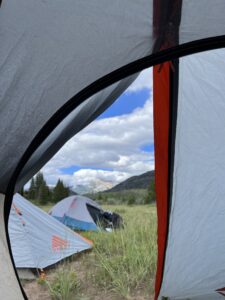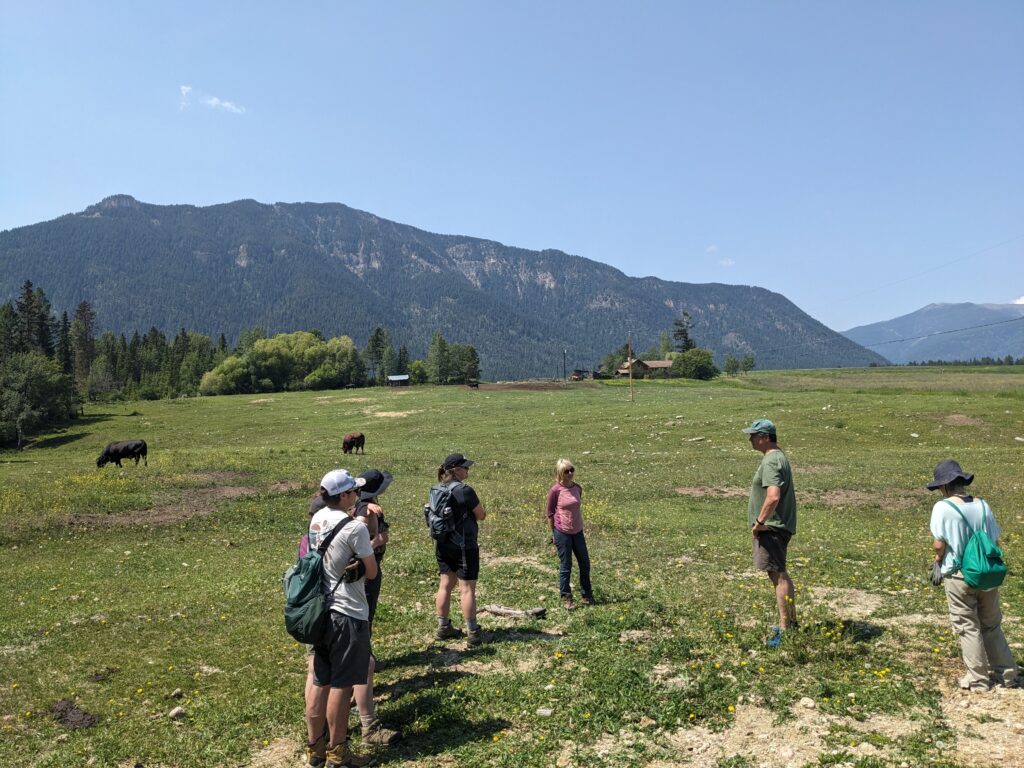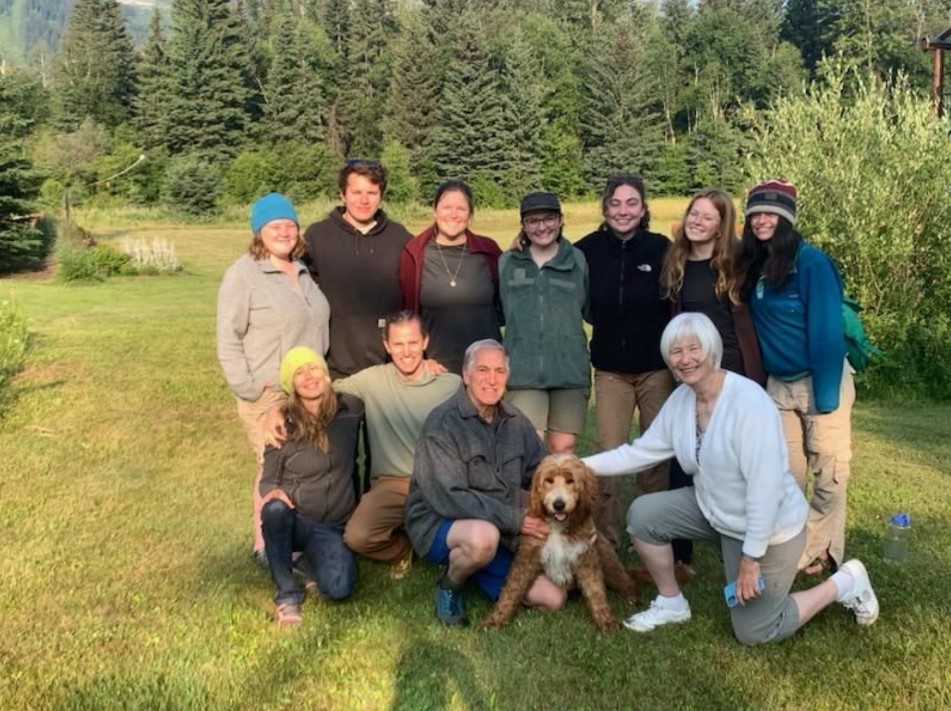
You’ve just woken up and you begin climbing out of your warm sleeping bag. You unzip your tent to be greeted by wet dewy grass and a valley that stretches on for miles, it seems. Dark greens, golden yellows, amber oranges, pinkish reds, and blues of all shades begin to fill your iris as the morning sun peeks over the mountains to say hello. Where can you possibly be? In a raspberry patch, on a kind couple’s farm. They’ve let you stay in exchange for the opportunity to share their knowledge with you, as well as maybe picking a few weeds as a thank you for their generosity.
This was the experience of our first day during WRFI’s six-week Conservation Across Boundaries course. The couple’s names are Bryce and Jillian Andrews. They own this farm in Arlee, Montana where they practice ethical farming. Both have devoted their lives to practicing, respecting, and bringing awareness for the environment as well as working with the first people to call this land home: the Confederated Tribes of the Salish and Kootenai peoples. During our stay at their farm, Bryce showed us how he raises grass-fed cows through the practice of free grazing. The cows move from one open pasture to the next every few weeks. In this way, he allows for land to regrow. He explained how many farms overuse the land, exhausting the topsoil, which can cause long-term damage. Besides respecting the physical land, Bryce and Jillian also respect and acknowledge that the land they are on has tribal importance to the Salish and Kootenai peoples. Their passion for such a cause was radiating off them as they spoke. As I sat and listened with an eager ear, I thought “Wow, now these are some people who whole-heartedly care about the environment.” The best part was, Bryce and Jillian were just the first out of many who would share that same passion along the way.

Stella and Les were another couple who have spent the majority of their lives as environmental consultants mitigating harmful impacts on the environmental. They welcomed us to their beautiful home in Fernie, British Columbia. During our stay, Stella explained that while she worked for Outward Alliance as an environmental consultant, she discovered the chemical selenium (a potential toxin in aquatic systems) in nearby bodies of water. This was a result of the runoff from the nearby Elk Valley Coal Mine. It was in part through Stella’s stern negotiation that the coal mine began to mitigate their amount of selenium released into the Elk and the Kootenay Rivers. This has been a huge deal since these rivers are international: they run not only through Canada, but also through the US. These rivers provide clean drinking sources for not just animals, but also many people who draw water from wells connected to the river. The work of Stella and her team created huge impacts on the well-being of the ecosystem that surrounds these rivers. Animals won’t leave or die off because of the poor quality of the water. Now they have clean drinking sources that will draw many different species to the source, creating a healthy and balanced ecosystem.
Just like Bryce and Jillian, Stella and Les opened their home to us and asked only to share their knowledge to bring awareness and hopefully a change to environmental issues. The most inspiring thing about our hosts is that they could easily choose not to care, and yet they choose to live their lives contributing to a healthy environment. Similarly, Bryce and Jillian could easily raise three times the amount of cattle on their land for more profit. They choose not to though, because they want to practice using their land in a sustainable way. This WRFI course is based on readings that we discuss and learn from. But it is the guest speakers who bring the words and concepts we read to life. Conservation is their lifestyle.
This program has taught me that little change and can lead to big change. And there are many people who are living each day toward a greener future. People like Les and Stella, and Bryce and Jillian bring hope that we can change fate by being more aware of how we live and how big of a footprint we are leaving behind. It may seem that what they are practicing is too small to create big change. But think about all the other people doing the same as our guest speakers. They are all simply parts to a greater whole. Hope comes from hundreds, if not thousands, of people practicing conservation in their daily lives. That’s where the real change is. Imagine what our future could be if we all chose to change our lifestyles to a more environmentally friendly way, even just a little bit.
